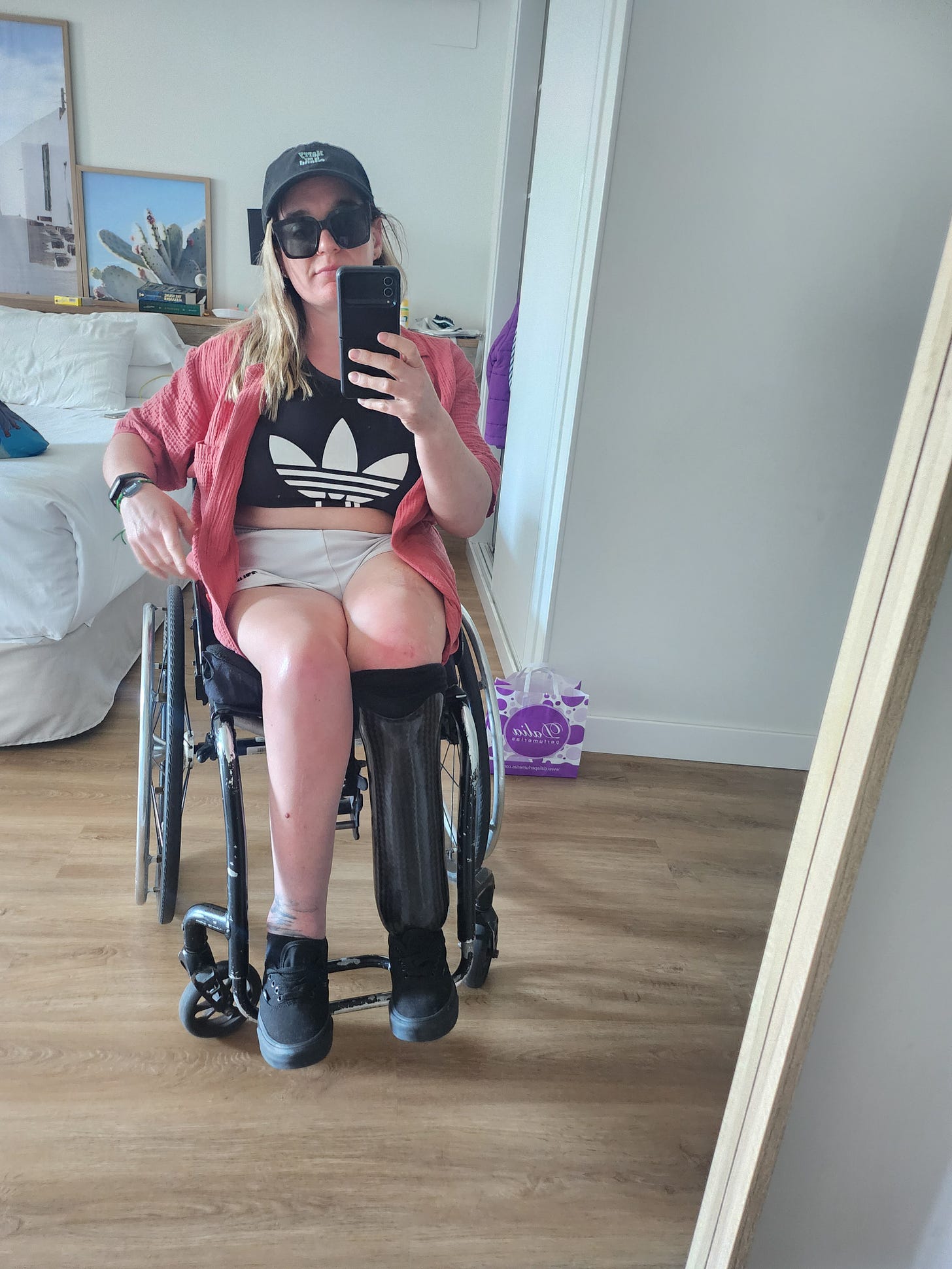20 years
For the last few weeks, it has been ricocheting around my brain that my 20th anniversary of becoming an amputee lines up with the one year anniversary of the genocide against Gaza, a war that has presented the “largest cohort of paediatric amputees in history”.
It’s hard to be an amputee and to not find associations with war; where I go for my prosthetic legs, the same team that looks after me has visited places like Afghanistan, Iraq, Sierra Leone, Zimbabwe, and Cambodia to fit adults and children with prosthetic limbs. Similarly, another team that used to look after me as a child used to travel to developing countries with the crutches and wheelchairs we had outgrown to give them to children who didn’t have anybody, let alone a team, to look after them.
I have struggled with my amputation, more so than the fact I am also a wheelchair user, but it’s a part of my identity that I often forget about or deprioritise. Sometimes when I go to a new doctor, they will ask me if I have any medical conditions, and I say no, forgetting that they mean what’s right in front of them, and not, like, diabetes or asthma.
When something is so present, so dominant, and so part of your life - you cannot get dressed without dressing your fake leg first - it’s background noise, but because the reasons behind any amputation aren’t particularly joyful, forgetting about it is has an appeal. But if you are in Gaza, perhaps there’s no time to dwell on losing a limb because you have to survive each day in a different way.
I find it very hard to breathe when I think about the trauma, and the shock, and the physical pain that those children are going through. When I am still coming to grips with my own amputation 20 years later, one that was carried out in a controlled environment, it’s unfathomable to think of how they are coping at all. My mind wanders even further; coping is a privilege.



